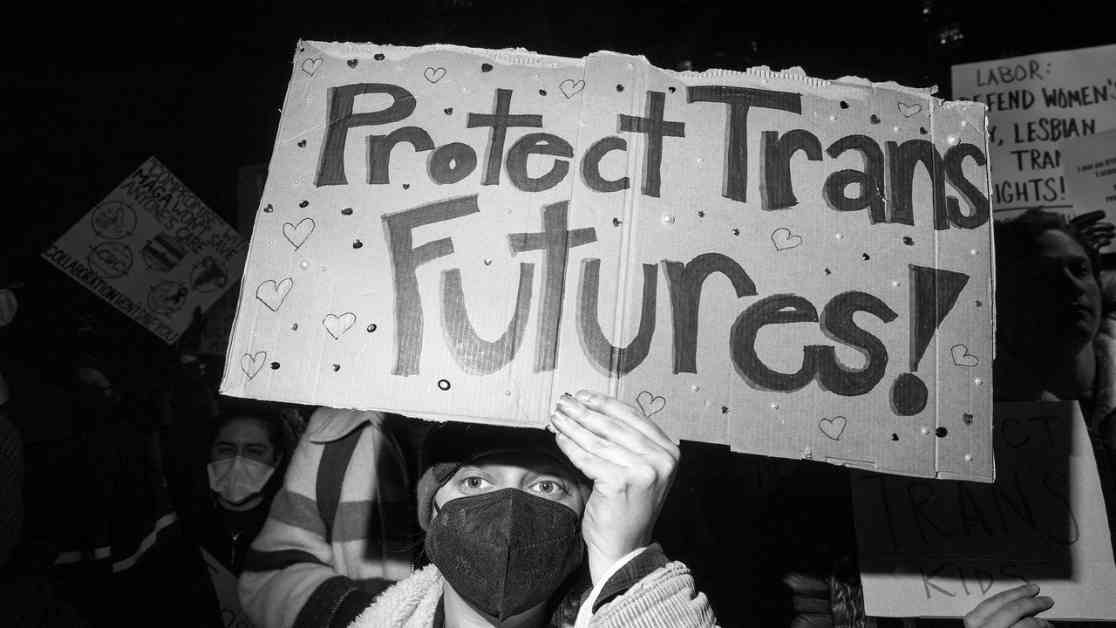On January 28th, Donald Trump signed an executive order titled “Protecting Children from Chemical and Surgical Mutilation,” which sparked a wave of uncertainty and fear among families of transgender children across the United States. The order declared that the country would no longer support, fund, or promote gender transition procedures for minors. This directive, defining a child as anyone under nineteen, has raised concerns about the future of gender-affirming care for young individuals. Major hospital systems in blue-state cities like Seattle, Los Angeles, Denver, and Washington, D.C., began canceling such services in response to the order, leaving many families in limbo.
### The Impact on Families and Children
Following the issuance of the executive order, families with transgender children found themselves grappling with the possibility of losing access to critical medical care. A mother shared her emotional journey of discovering her daughter’s gender identity and the positive impact that gender-affirming care had on her child. The mother recounted the relief and confusion she felt upon learning about her daughter’s struggles and ultimate revelation that she identified as a girl. The decision to allow her daughter to socially transition and receive puberty blockers was a carefully considered choice made in consultation with medical professionals, resulting in a significant improvement in her child’s well-being.
As the executive order reverberated across the country, families like the one mentioned faced a growing sense of uncertainty and fear regarding the future of transgender healthcare. The order, part of a broader anti-trans campaign by Trump during the 2024 Presidential campaign, reflected a concerning trend of legislative efforts to limit access to gender-affirming care for minors at the state level. Despite pushback from medical authorities and ongoing legal challenges, the order has cast a shadow of doubt over the availability of essential treatments for transgender youth.
### Legal Battles and Advocacy Efforts
In response to the escalating restrictions on transgender healthcare, states like New York have enacted safe-haven laws to protect trans youth and their families from discrimination and legal repercussions. These legislative measures aim to provide a supportive environment for individuals seeking gender-affirming care amid the shifting political landscape. However, the executive order’s impact has already been felt by families in New York City, where hospitals have begun canceling appointments and surgeries, leaving parents and children in distress.
The uncertainty surrounding the future of transgender healthcare has led to a surge in anxiety and desperation among families seeking essential treatments for their children. The potential disruptions in care have prompted concerns about the emergence of an underground market for hormones and other medications, as families grapple with the prospect of limited access to life-saving treatments. Healthcare providers like Dr. Jeffrey Birnbaum have expressed deep concerns about the implications of the executive order on the well-being of transgender youth and the future of evidence-based care.
As families navigate the challenges posed by the executive order, community support and advocacy efforts have emerged as beacons of hope in an uncertain landscape. Recent rallies and demonstrations in support of trans youth have highlighted the resilience and determination of individuals fighting for equal rights and access to healthcare. The stories of families like Willow’s, who have faced setbacks and obstacles in the wake of the order, underscore the urgent need for continued advocacy and support for transgender children and their families.
In conclusion, the ramifications of Trump’s executive order on transgender healthcare continue to unfold, leaving families, healthcare providers, and advocates grappling with uncertainty and fear. As the legal battles and advocacy efforts intensify, the future of gender-affirming care for minors hangs in the balance, underscoring the critical need for continued support, understanding, and compassion for transgender youth and their families.












